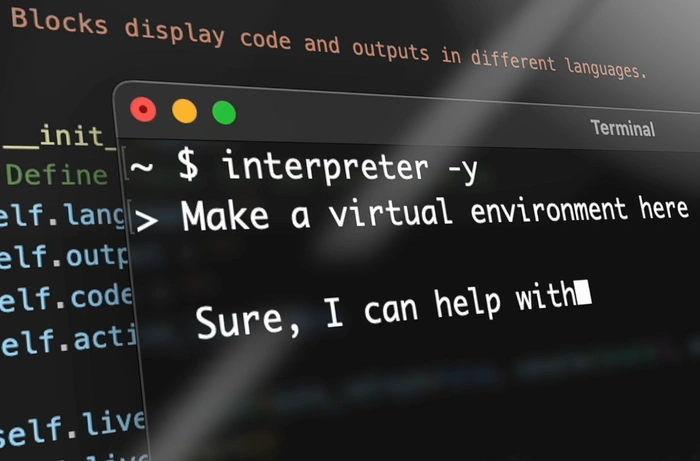In the ever-evolving world of artificial intelligence and machine learning, the quest for efficient, user-friendly, and secure tools is a constant endeavor. One such tool that has been making waves in the AI community is the Open Interpreter, an open-source alternative to the previously rebranded ChatGPT Code Interpreter, now known as the Advanced Data Analysis feature.
Open Interpreter is a versatile tool that allows large language models (LLMs) to run code in various languages such as Python, Javascript, Shell, and more, locally on your computer. It provides a natural-language interface, akin to a ChatGPT-like interface, which can be accessed in your terminal by running the $ interpreter command after installation. This feature opens up a world of possibilities, enabling users to create and edit multimedia files, control a Chrome browser for research purposes, and even plot, clean, and analyze large datasets.
Open Interpreter open source alternative to ChatGPT Code Interpreter
While ChatGPT Plus offers advanced data analytics, users have reported certain limitations. Open Interpreter, on the other hand, is a tool that runs on your computer and does not collect data, making it a more secure option for those working with sensitive data. Moreover, it has no limitations on usage time or file size, making it a more flexible tool for extensive projects.
One of the key features of Open Interpreter is its ability to perform multiple tasks in one place. For instance, users can download videos from YouTube, extract necessary parts, transcribe, translate, and even add subtitles, all within the same interface. This multi-functionality makes it a highly efficient tool for a wide range of tasks.
Other articles you may find of interest on the subject of Open Interpreter and advanced data analytics :
How to setup Open Interpreter
Installation of Open Interpreter is straightforward. Users need to download Python and follow the setup instructions provided. Furthermore, a desktop application is currently in development, which will make the tool even more accessible and user-friendly.
In contrast, OpenAI Services is heavily restricted due to cost, with limitations on internet access, Python packages, upload size, and message frequency. Open Interpreter, however, can automate tasks such as grouping files based on their type and renaming files, making it a more versatile tool.
Analyze and visualize data sets
The software also has the capability to analyze and visualize data sets, scrape information from websites, and summarize research papers. It can even create GIFs based on user instructions. However, it’s worth noting that accessing complex sites like LinkedIn or Google Drive is not possible with Open Interpreter.
Users are advised to be mindful of costs when using OpenAI API and to set hard limits on usage. Open Interpreter offers interactive chat, programmatic chat, and the ability to save and restore chats. Custom system messages can be used for custom instructions, providing a similar agent-like experience in free chat GPT or ChatGPT Plus for a monthly fee.
Open Interpreter is a promising open-source alternative to ChatGPT Code Interpreter. Its versatility, security, and user-friendly interface make it a valuable tool for anyone working with large language models. However, like any tool, it has its limitations and users should be mindful of these when choosing the right tool for their needs.
Filed Under: Guides, Top News
Latest Aboutworldnews Deals
Disclosure: Some of our articles include affiliate links. If you buy something through one of these links, Aboutworldnews may earn an affiliate commission. Learn about our Disclosure Policy.







